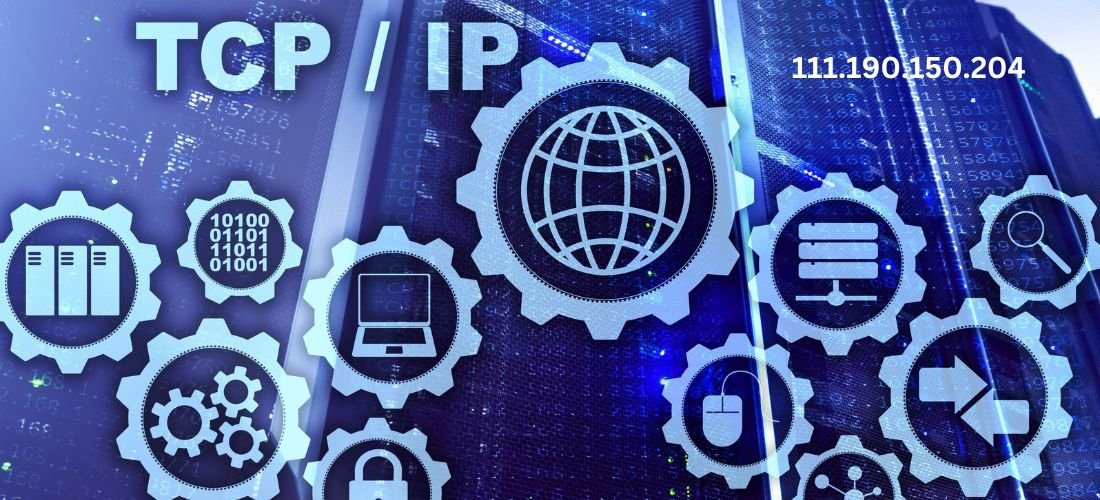
111.190.150.204 A Comprehensive Guide
In the vast realm of digital communication, an IP address (Internet Protocol address) serves as a fundamental component. It is akin to a home address for your computer, smartphone, or any device connected to a network. This unique identifier enables devices to locate and communicate with each other over the internet, ensuring that data sent from one device reaches its intended recipient accurately.
An IP address consists of a series of numbers separated by periods (in the case of IPv4) or colons (for IPv6). For instance, a common IPv4 address might look like 192.168.1.1, while an IPv6 address could appear as 2001:0db8:85a3:0000:0000:8a2e:0370:7334. These addresses are crucial for establishing connections between devices, facilitating the seamless exchange of information that powers our digital interactions.
Why Focus on the IP Address 111.190.150.204?
Among the myriad of IP addresses that make up the internet, 111.190.150.204 has garnered attention for its specific characteristics and potential implications. By delving into this particular IP address, we can uncover valuable insights into its geographical location, its role in various network activities, and its relevance in cybersecurity.
Examining IP addresses like 111.190.150.204 can reveal patterns in network traffic, identify potential security threats, and help in understanding the broader context of how internet protocols function. Whether for troubleshooting network issues, analyzing cyber threats, or conducting research, understanding the nuances of specific IP addresses can provide critical information that enhances our ability to manage and secure digital environments effectively.
Read Also: Memphis Grizzlies vs Phoenix Suns Match Player Stats | swgoh webstore
IP Address Structure and Types
IPv4 vs. IPv6
- IPv4: This is the most common IP address format, consisting of four sets of numbers ranging from 0 to 255 (e.g., 192.168.1.1). IPv4 addresses are becoming scarce as more devices connect to the internet.
- IPv6: Introduced to address the limitations of IPv4, IPv6 uses a longer string of alphanumeric characters, allowing for a much larger number of unique addresses (e.g., 2001:0db8:85a3:0000:0000:8a2e:0370:7334).
Public vs. Private IP Addresses
- Public IP Address: Assigned by your ISP, this address is used to identify your network on the internet.
- Private IP Address: Used within your local network, these addresses are not visible on the public internet.
Analyzing the IP Address 111.190.150.204
Geolocation of 111.190.150.204
Geolocation services can determine the approximate physical location of an IP address. For the IP address 111.190.150.204, geolocation can reveal the country, region, and city where the IP is registered or used.
Whois Information
Whois databases provide details about the ownership and registration of an IP address. For 111.190.150.204, a Whois lookup can show information about the organization or ISP managing this IP address.
Potential Uses and Misuses
- Legitimate Uses: The IP address may be associated with various services such as web hosting, cloud services, or corporate networks.
- Misuses: IP addresses can be exploited for malicious activities, including cyberattacks or unauthorized access attempts. Understanding the risks associated with specific IPs is crucial for maintaining cybersecurity.
Security Implications
Threats and Vulnerabilities
IP addresses like 111.190.150.204 can be used in different types of cyberattacks, such as DDoS attacks or phishing schemes. It’s important to monitor and protect your network against such threats.
Protecting Your Network
- Firewalls: Implementing a firewall can help block malicious traffic from unwanted IP addresses.
- VPNs: Using a Virtual Private Network (VPN) can mask your IP address and enhance your privacy online.
- Regular Updates: Keeping your software and systems updated can protect against vulnerabilities that may be exploited through IP addresses.
Legal and Ethical Considerations
Privacy Concerns
Understanding the privacy implications of tracking and analyzing IP addresses is crucial. While IPs can provide useful information, they should be handled responsibly to avoid infringing on individual privacy.
Regulations and Compliance
Different regions have varying regulations regarding IP address tracking and data privacy. Ensure that your practices comply with relevant laws and standards.
Case Studies and Real-World Examples
IP Address in Cybersecurity Incidents
Examining past cybersecurity incidents involving IP addresses similar to 111.190.150.204 can provide insights into common attack vectors and preventive measures.
Impact on Businesses and Individuals
Understanding how IP addresses affect both businesses and individuals can highlight the importance of robust security practices and proactive measures.
Conclusion
The IP address 111.190.150.204, like any other IP, plays a role in the vast and intricate web of internet connectivity. By understanding its structure, uses, and potential risks, we can better protect ourselves and our networks from cyber threats. Regular monitoring, adopting security best practices, and staying informed about emerging threats are key to maintaining a secure online presence.
Read Also: drawing:a4z_-ymtkr8= cat | this blog will show you about the new digital technology in thailand
FAQs
1. What is the significance of an IP address in network security?
An IP address helps identify and track devices on a network. In network security, it’s used to monitor traffic, detect suspicious activity, and enforce access controls.
2. How can I find out more about a specific IP address?
You can use online tools for IP lookup, Whois databases, and geolocation services to gather information about a specific IP address.
3. Can IP addresses be used to trace someone’s physical location?
While geolocation can provide an approximate location, it’s not always accurate and should not be relied upon for precise tracking.
4. What are the best practices for protecting my IP address?
Using a VPN, implementing strong firewall rules, and regularly updating software are effective practices for protecting your IP address.
5. Are there legal issues associated with tracking IP addresses?
Yes, tracking and analyzing IP addresses can raise privacy concerns and legal issues. Ensure compliance with relevant laws and regulations when handling IP data.



